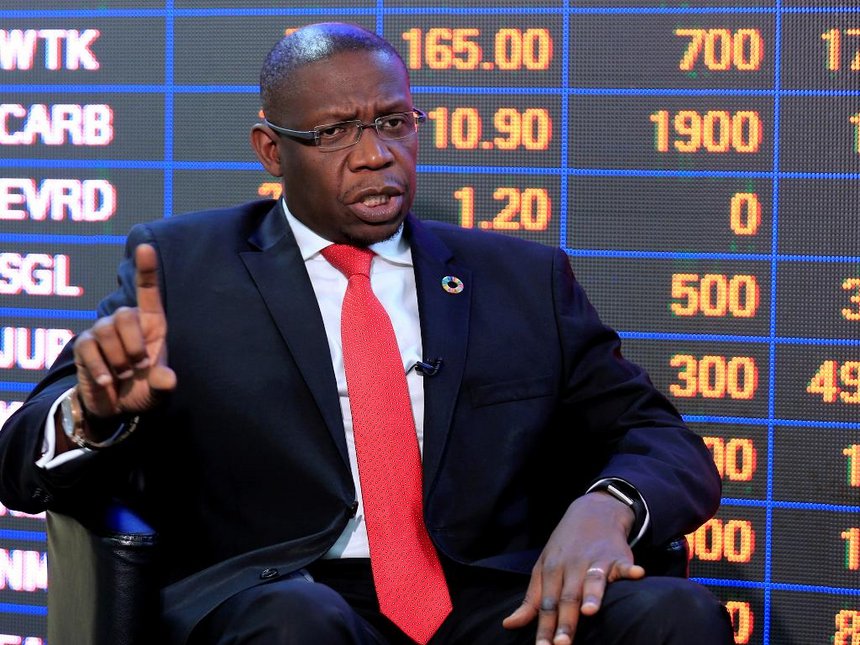Geoffrey Odundo, Chief Executive of the Nairobi Securities Exchange, speaks during a Reuters interview at the Nairobi Securities Exchange in Nairobi, Kenya September 6, 2018. REUTERS Kenya’s economic growth momentum for this year could be snuffed out if a widely unpopular 16 percent Value Added Tax on fuel is maintained, the country’s chamber of commerce said on Friday, pointing at higher prices of goods and transport.
The tax, which came into force on Sept. 1, is part of a government bid to boost revenue collection in order to narrow its fiscal deficit and secure an extension of a standby credit facility from the International Monetary Fund.
The High Court on Thursday ordered a temporary suspension of the tax, but prices at petrol stations visited by Reuters on Friday had not come back down.
"We are asking the government to re-think its options for financing its development and recurrent expenditure instead of overtaxing various products that already bear large tax burdens," the Kenya National Chamber of Commerce and Industry (KNCCI) said in a statement.
The Treasury could not immediately be reached for comment.
The finance ministry expects economic growth to rebound to 5.8 percent this year after drought, jitters over a presidential election and sluggish private sector credit growth cut last year’s growth to 4.9 percent.
"The recent resurgence of the economy will be negatively impacted by this move and this will reverse any growth we have seen in the past year," KNCCI said.
The new VAT on fuel sent the retail price of petrol up by 12 percent per litre. Transport operators have also raised their charges and some petrol dealers have gone on strike to protest against the new tax, causing fuel shortages. The tax was originally included in a law passed in 2013, but was postponed several times, amid protests about its impact.
The revenue authority introduced the tax on Saturday but President Uhuru Kenyatta could still reverse it by signing a bill postponing it again.
Justin Muturi, the speaker of the national assembly, told Reuters on Friday the legislature was consulting with the finance ministry to find a way forward on the tax.
Kenyan businesses and ordinary people routinely complain of a heavy tax burden. The chamber of commerce said the government could widen the tax base and increase the rate of tax compliance to 50 percent from the current 17 percent.
